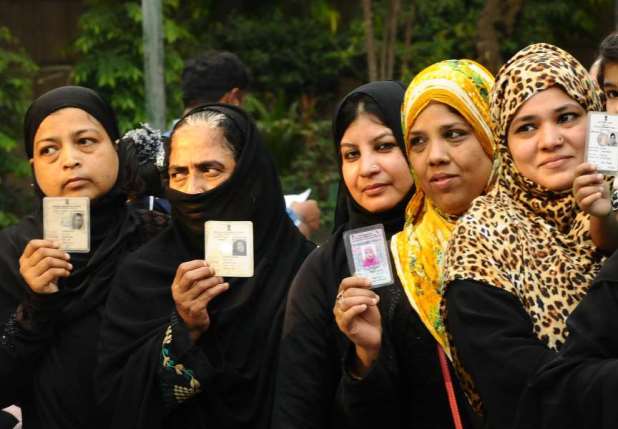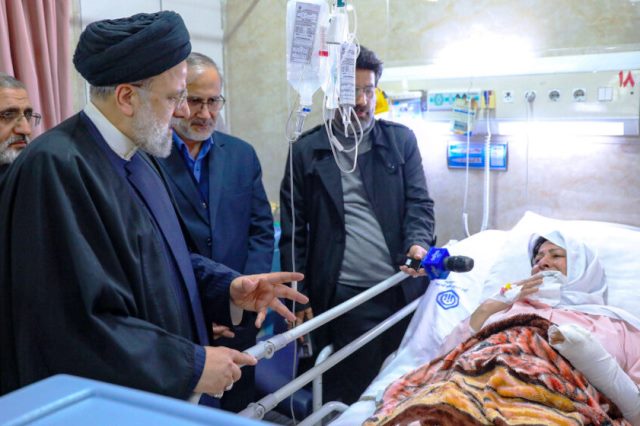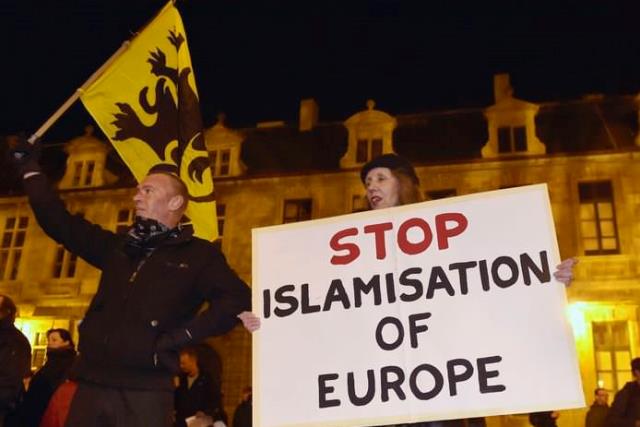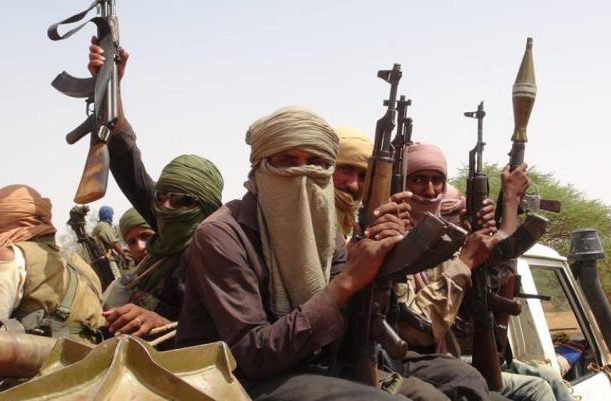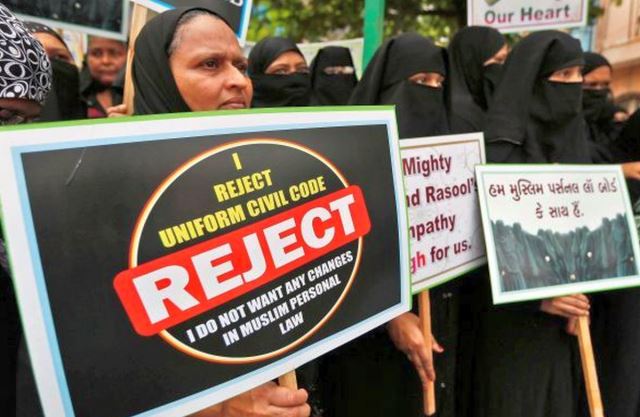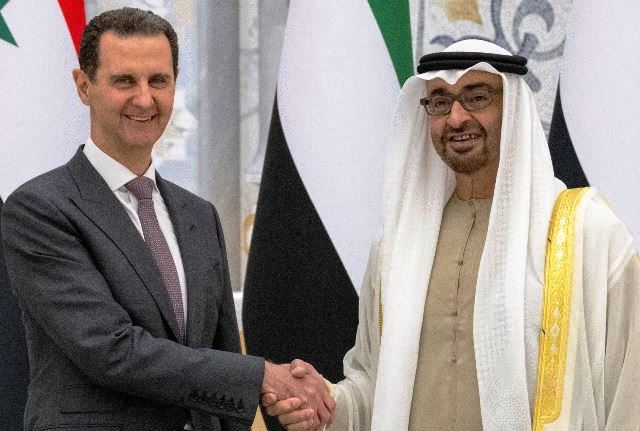The election festival in India has started yet again and with the first phase of the mammoth exercise starting off on 19 April, the political pundits are wondering once again, how the Indian Muslims are going to vote.
If we analyse the election results of the last two general elections, then we realise that at the national level, in the past two national elections Indian Muslims at many places voted strategically, yet a party with just 35% of the vote emerged victorious.
However, it should not dishearten the Indian Muslims, they should take courage from the fact that they are standing along with the 65% of the Indian population, which stands for India’s secular credentials and values. Alas, this reality is not seen by the so-called Muslim parties, which often emerge as vote spoilers or dividers, by attracting a minuscule number of Muslims and giving an edge to anti-Muslim forces.
Data available at the Election Commission of India’s website from the Lok Sabha polls in 2019, shows that the ruling BJP won narrowly on 40 seats in the country.
Of its 303 tally, it won by less than 50,000 votes in as many 40 seats in 2019. This is usually considered a reversible margin.
This means that if the margins had been reversed, it would have taken its tally down to 263. Of these 40 narrow victories, 11 were versus the Congress party, and six against the Bahujan Samaj Party, Samajwadi Party and Biju Janata Dal. Four were versus the Trinamool Congress, two versus the Rashtriya Lok Dal, and one each against the All India United Democratic Front, Jharkhand Mukti Morcha, Janata Dal (Secular) and an Independent.
Moreover, fourteen of these narrow seat victories were in the crucial state of Uttar Pradesh. Machlishahar in U.P. has the dubious distinction of electing a BJP candidate by just 181 votes in the last elections. Overall, of its 303 seats, BJP won by less than one lakh votes on 77 seats.
In view of these facts, firstly, it should be the strategy of the secular political parties and particularly of the Muslim leaders to focus on these crucial seats and turn the tide against the anti-Muslim party. The irony is that even the parties, which were once relied upon as saviours of the Muslims like the Samajwadi and BSP, have also emerged as Muslims haters. In view of this the Muslims should vote strategically and vote for a lesser danger than the bigger danger.
Secondly, if we find our so-called leaders and parties lacking in these efforts, then the community’s intellectuals and experts, who are robustly active on various social media platforms, should persuade the Muslim voters to cast their vote positively on the D-day.
The mention of the importance of social media in today’s India, brings our attention to a recent report complied by Al Jazeera on the medium’s importance and how it is being used to spread mis- or dis-information and increasing Islamophobia among the electorate.
India has over 460 million YouTube users, making it the platform’s largest market, with four out of five Internet users in India consuming its content. Increasingly, more and more Indians are getting their news from YouTube, now a days.
The report says that most often these YouTube channels peddle mis- or dis-information in the garb of news. Some of these YouTube news channels increasingly offer a smattering of dis-information and Islamophobia, often cheerleading the ruling dispensation, while targeting its critics and opposition leaders. However, what makes these channels unique is that they claim to be ‘news’ channels, ostensibly claiming to present fact-based reportage.
These channels, though lesser known than mainstream news channels, have millions of viewers, giving them an outsized role in how the world’s largest democracy is consuming news as India prepares for its national election. Most of these channels have followers running into millions, with over billion views, a staggering and fearsome figure indeed.
With such a wide reach, concerns abound on how such ‘news’ outlets might shape perceptions and opinions, especially during the election season.
Studies have shown that Indians place greater trust in news they view on YouTube and WhatsApp, over news delivered by mainstream media outlets. Already, the World Economic Forum’s 2024 Global Risk Report has concluded that the most severe risk India faces is the fallout from the spread of false information.
The Al Jazeera report further quotes a study done by Narrative Research Lab, a New Delhi-based data lab that uses artificial intelligence (AI) to track print media and social media content, NRL analysed the content across six channels – NMF, Rajdharma, Headlines India, Shining India, Capital TV and O News Hindi – and found that on all these channels, coverage of India’s opposition parties was muted and its leaders were rendered almost invisible. In contrast, PM Modi and the BJP loomed large, their coverage almost always glowing.
The lab analysed 2,747 videos published by these channels between December 22, 2023, and March 22, 2024. In their findings, the lab found that across all the channels, some of the most frequently used words in the titles were “Modi”, “BJP” and “Yogi”, while mentions of opposition parties and leaders were used scarcely.
A “sentiment analysis” by the lab found that while “Modi” was used commonly across videos that had both negative and positive sentiments, references to India’s opposition figures like Gandhi mostly emerged in negative phrases.
Routinely, these channels amplify Islamophobic sentiments and use anti-Muslim tropes. The Narrative Research Lab analysis also found that there was a spike in the number of videos these channels produced on events like the day the contentious Citizenship Amendment Act rules were announced on March 11.
Another issue, which haunts the journalists in this election season, is the extra vigil and precaution, which they have to exercise while covering the elections. Based on their past experiences, the journalist in a survey carried out by the US-based, CPJ – The Committee to Protect Journalists, which promotes press freedom worldwide, and defends the right of journalists to report the news safely and without fear of reprisal, said they were concerned about political violence, criminalisation of journalism, attacks by other journalists and online censorship, while covering the elections.
Overall, these elections are crucial not just in face of the daunting task carried by journalists as listed above, but are also important for the minority community to vote strategically, unitedly, unwaveringly and certainly by ensuring their presence at the polling booths on the D-day, to ensure the safety of minorities in the country, besides safeguarding the country’s constitutional and secular values,
Otherwise the foreboding messages, which currently abound on WhatsApp university may turn into a frightening reality.
(The writer is a Delhi-based senior political and international affairs commentator)
For more details visit us: https://lokmarg.com/
